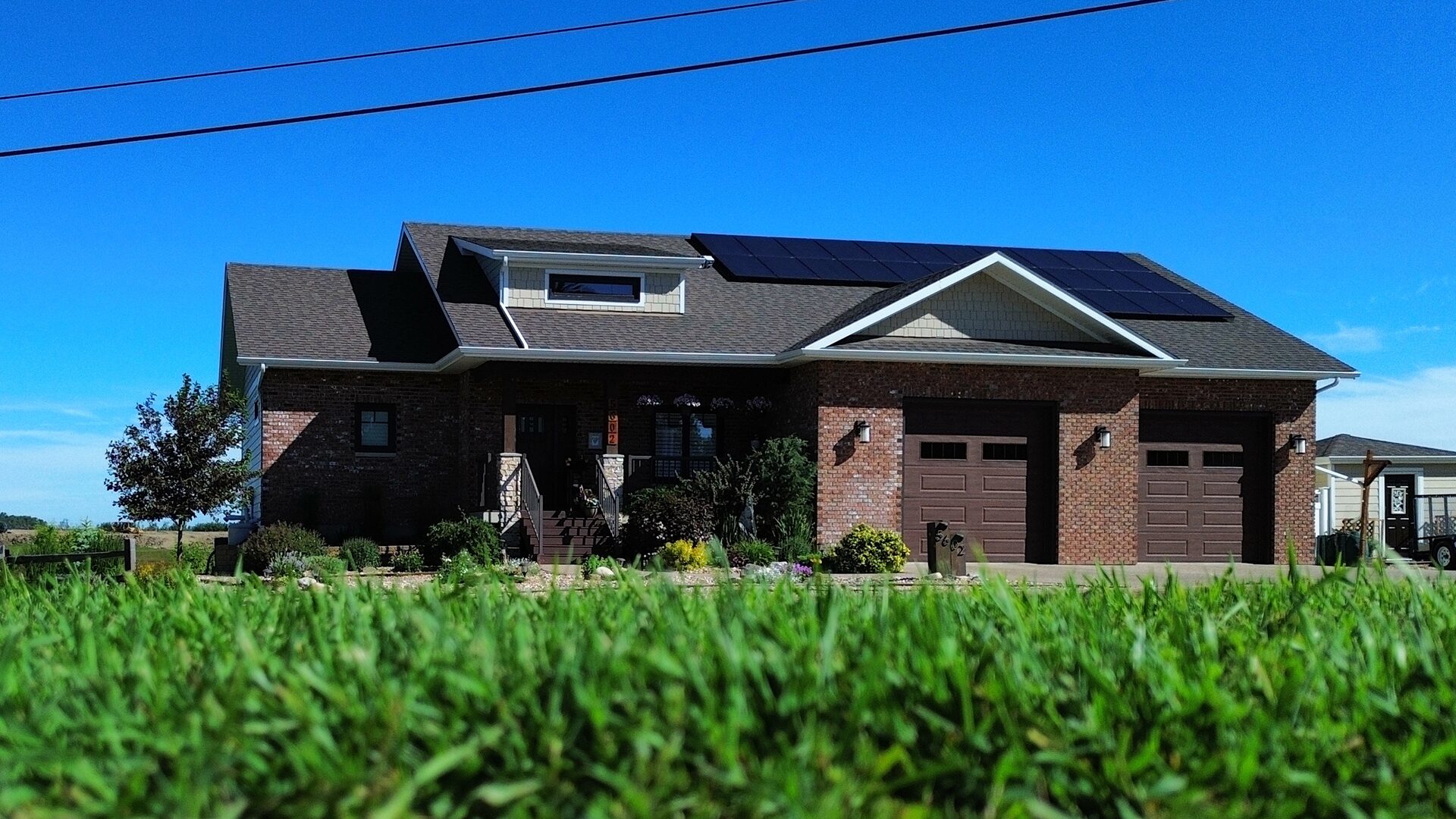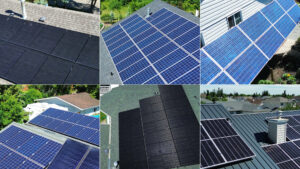by Cameron Domes
Purchasing a home with solar panels already installed can be a great advantage. Not only will you enjoy lower energy bills right from the start, but you’ll also avoid the often time-consuming and complex installation process. However, before you make your decision, there are several important factors to consider to ensure the system meets your needs and is a smart investment.
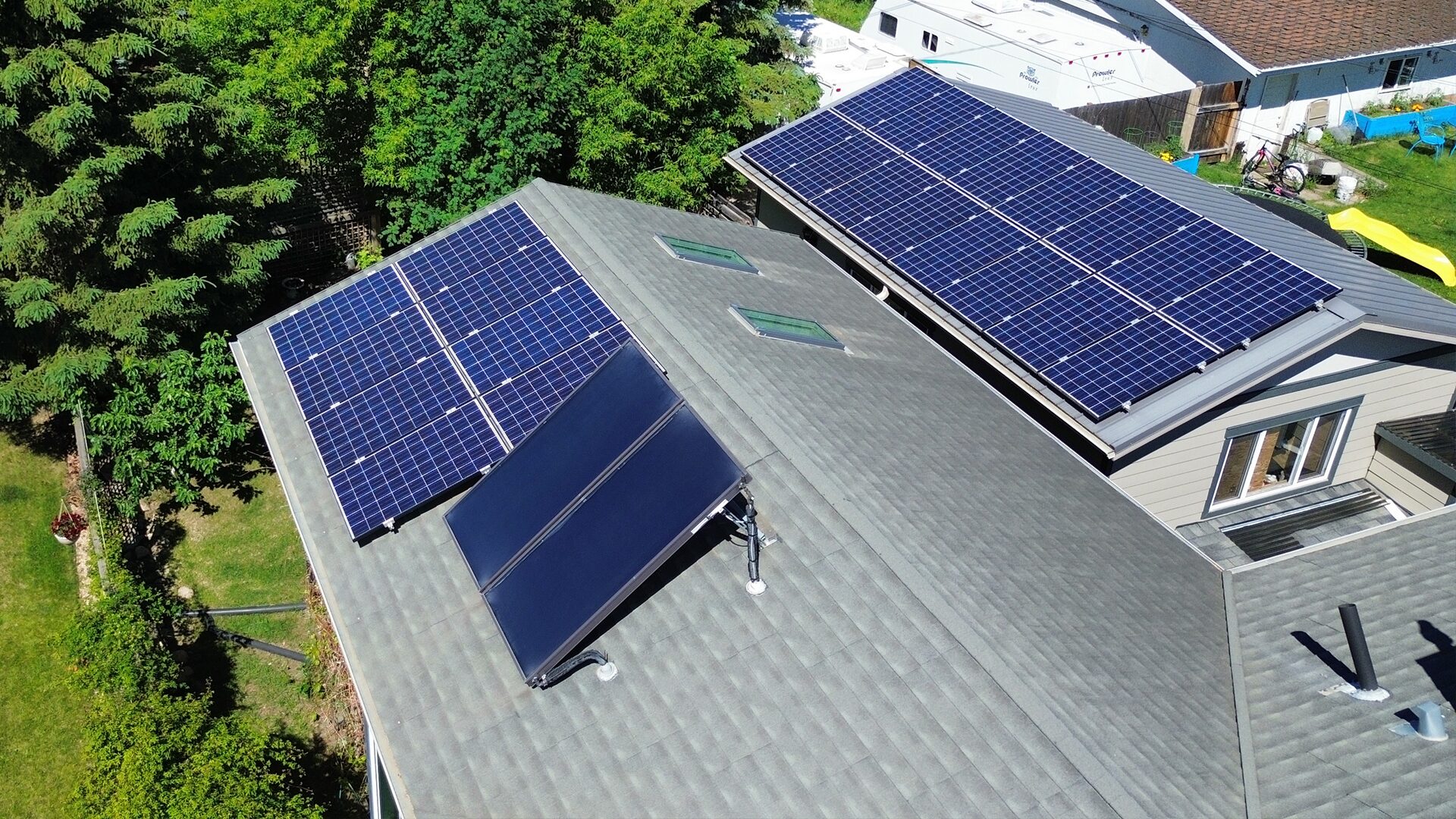
1. Review the System’s Documentation
A well-documented solar system is a good indicator that the installation was properly done. When buying a home with solar panels, ask the seller for crucial paperwork, including the single-line diagram and site plan. These documents provide important details about the installer, system age, equipment specifications, and expected energy production. Be sure to also request copies of the interconnection agreement and any microgeneration contracts with the utility provider—these could be important if any issues arise in the future.
2. Understand the Warranty Details
Solar systems typically come with two types of warranties: one for the installation and another for the equipment. The installer’s warranty usually covers workmanship for anywhere from 1 to 10 years, while the panels and inverters often have warranties that last 25 years or more. Be sure to get the relevant documentation for both so you’re protected in case anything malfunctions.
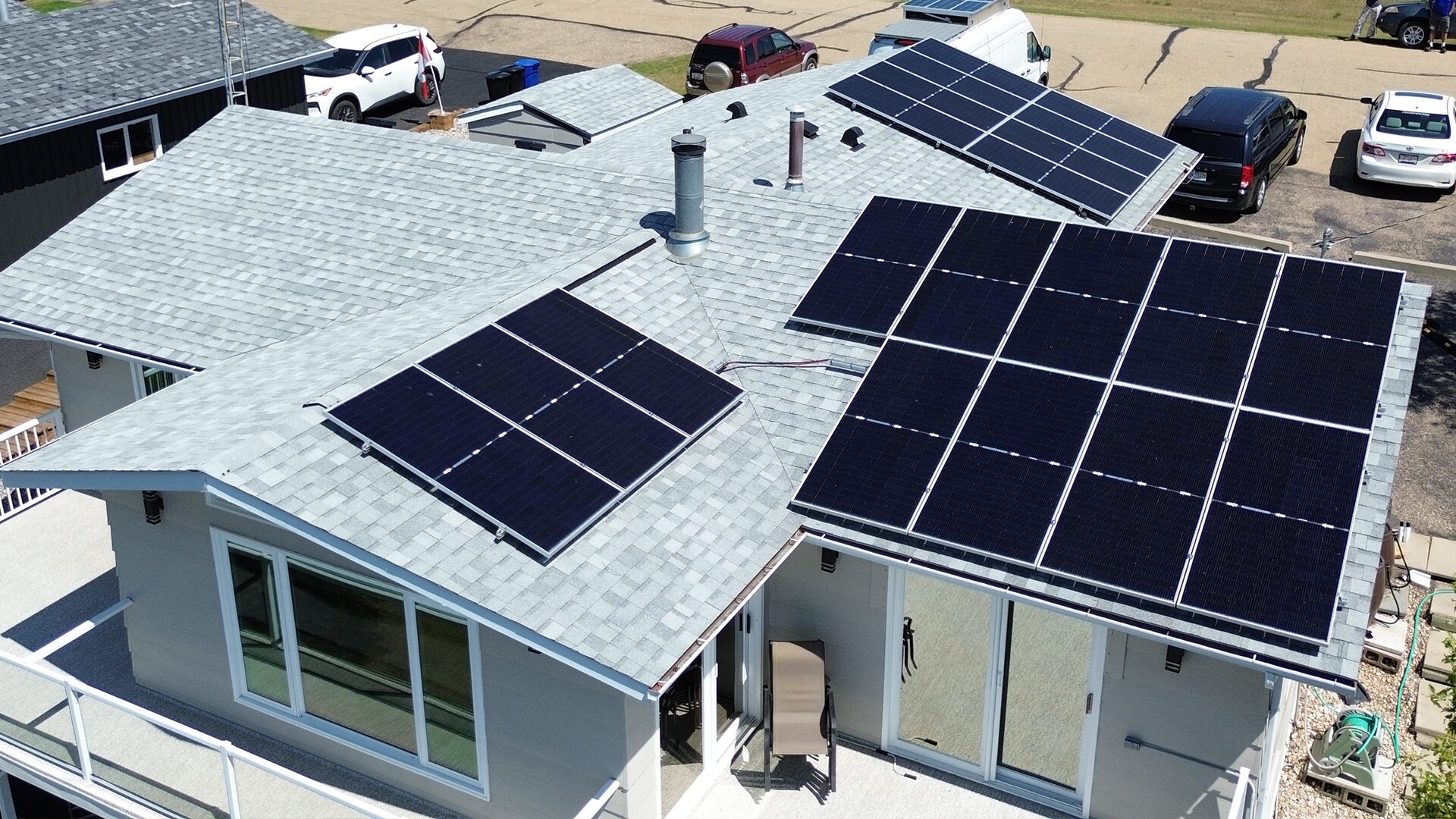
3. Check the System’s Production History
While the previous owner’s energy usage might not exactly match yours, reviewing past production data can give you a clear idea of what to expect. If the system generates less energy than you’ll need, you might have the option to expand it later. On the other hand, if it produces more energy than you use, that’s a bonus! You could potentially eliminate your electricity bills entirely and even earn credits through the Solar Club™. Here’s a link to our other blog about how to achieve near-zero electricity bills by matching your solar array size with your consumption.
4. Understand the Monitoring System
All solar systems come with monitoring tools that track energy production and alert you to potential issues, such as a faulty microinverter. Some monitoring systems are linked to the original owner’s account, so it’s essential to confirm that access will be properly transferred to you when you take ownership.
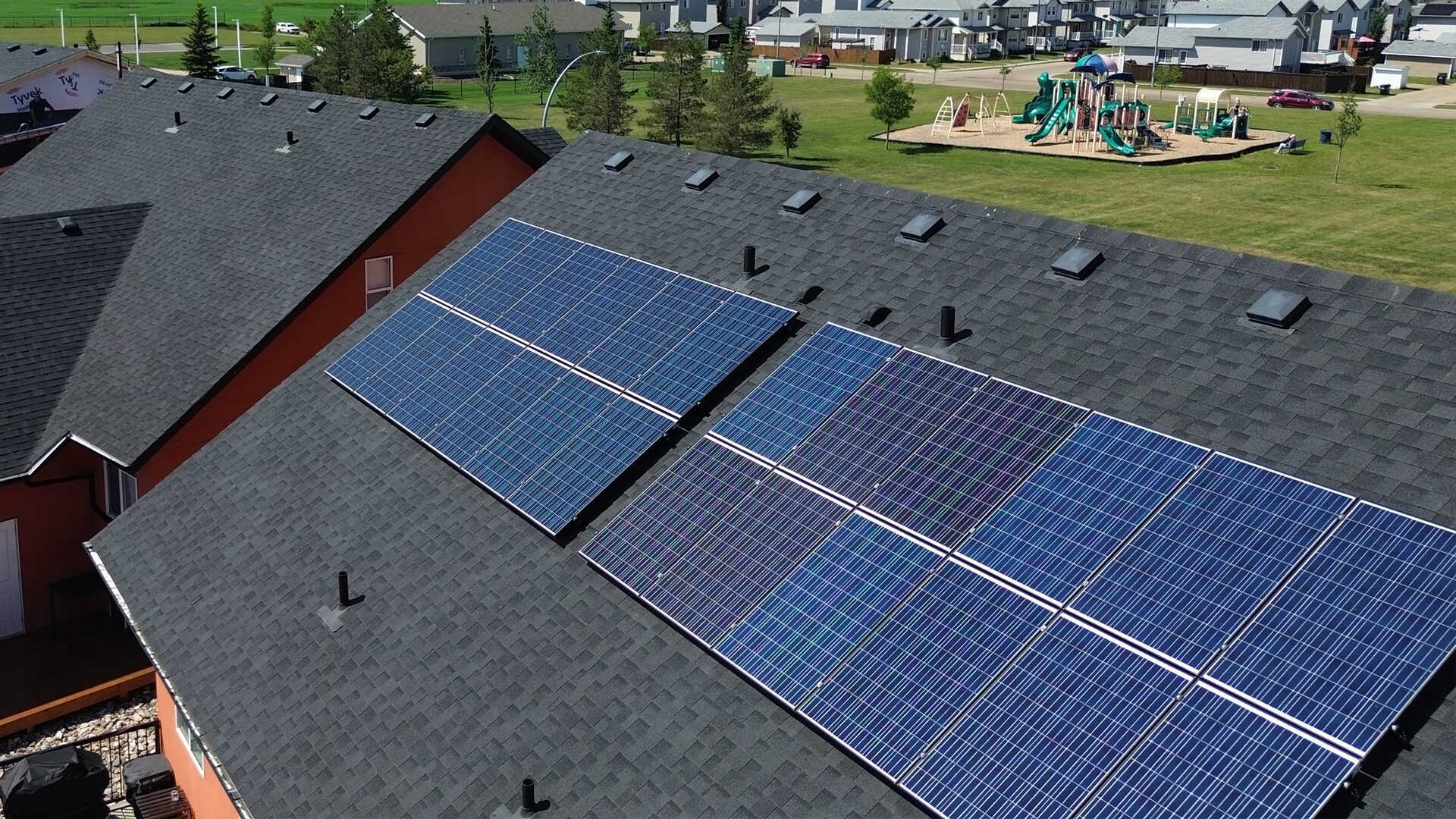
5. Evaluate the Added Cost
Many realtors include the original cost of the solar system in the home’s listing price. While this is typically fair, some systems may be overvalued. A good rule of thumb is to aim for under $3.00 per watt, though the system’s age and efficiency can affect this. For example, here’s a simple calculation: 7.48kW x 1000 = 7,480W x $3.00 = $22,440.
6. Investigate Existing Loans or Grants
Some solar systems are financed through programs like Edmonton’s Clean Energy Improvement Program (CEIP) or the Canada Greener Homes Loan. These programs may attach repayment obligations to the property rather than the homeowner. Be sure to understand whether you’ll be responsible for any payments or if there are ongoing requirements, such as reporting energy production data.
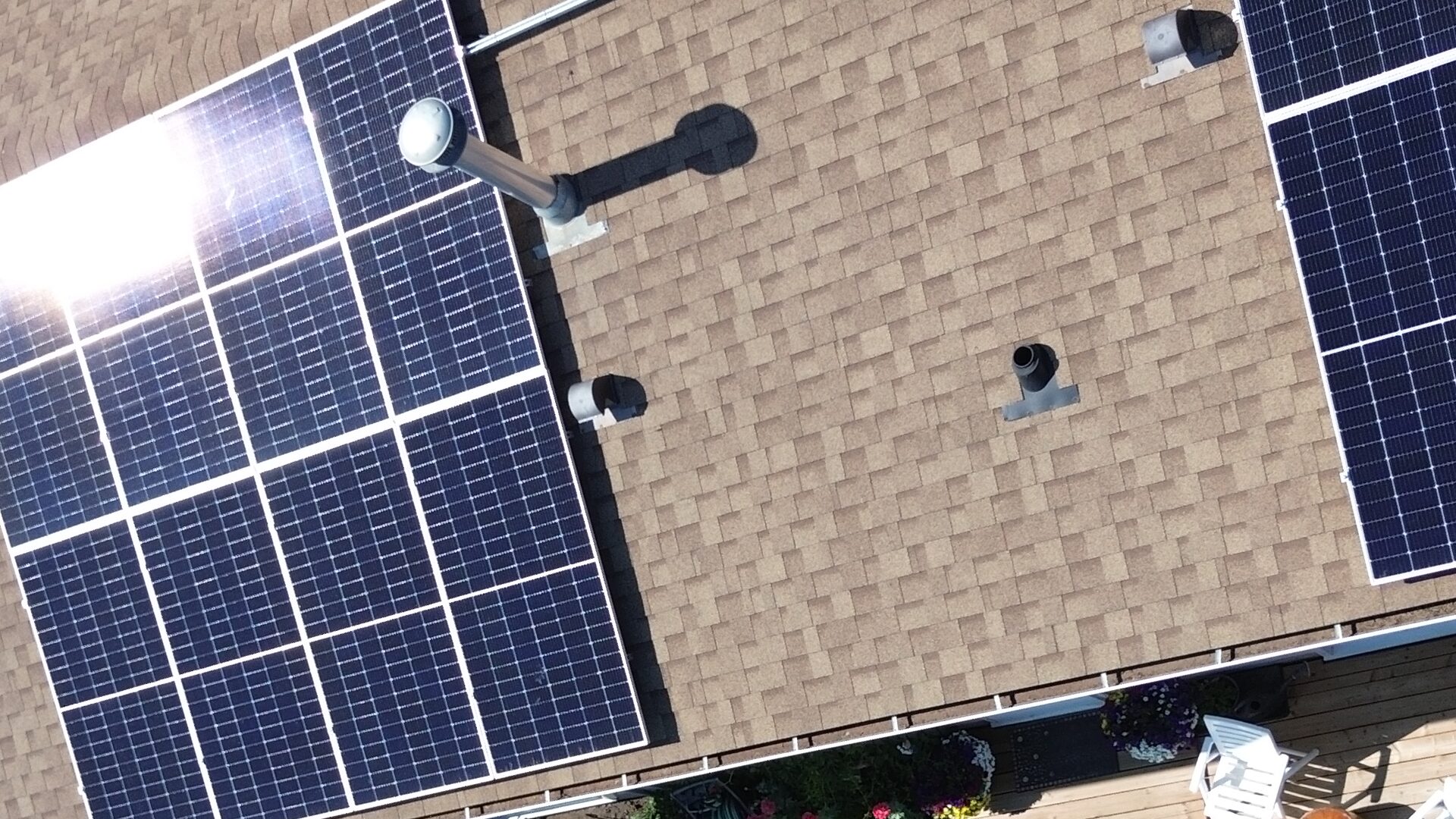
The Next Essential Step
Alberta’s Micro Generation rules allow you to produce enough energy to cover your annual usage. The previous owner may have secured an Interconnection Agreement based on their needs. As the new homeowner, you’ll need to contact your WIRE Service Provider (this will depend on your location) to establish a new Interconnection Agreement. This step is crucial for receiving credit for any excess energy you feed back into the grid. Don’t wait – reach out to them to maximize the benefits of your solar investment.
Final Thoughts
A home with solar panels can be an excellent eco-friendly investment, but as with any major purchase, it’s important to do your homework. By reviewing these essential details ahead of time, you’ll be well-equipped to make a smart, informed decision and enjoy all the benefits that come with owning a solar-powered home.
Have questions? Don’t hesitate to contact your local Solar Experts at (780) 781-4115. We Love to Talk Solar!

